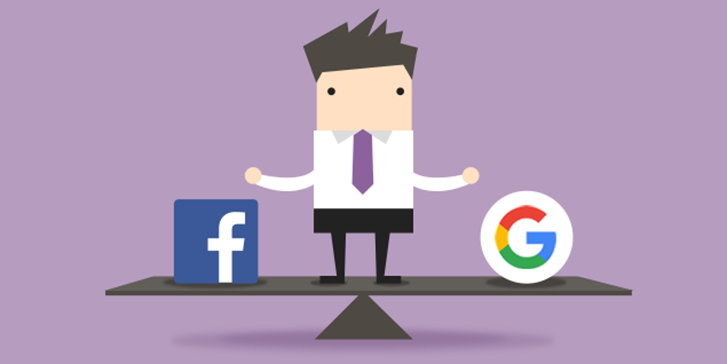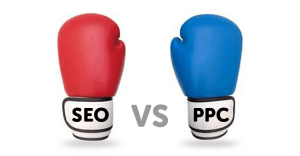You’re a business owner and after careful consideration you’ve decided to allocate some budget to spend on a paid advertising campaign to promote your products or services, the question is which ad platform should you use and which will give you the best overall ROI? If you are a small or medium-sized business you probably have a limited marketing budget and deciding how to allocate this budget accordingly can be a challenge not to mention time-consuming if you are not familiar with the various advertising platforms. In this article we compare the two biggest advertising platforms in existence; Google Ads and Facebook Ads.
Google Ads
Google has 92.42% of the search engine market share worldwide with approximately 5.8 billion searches per day being performed by users, it’s the search engine the majority of Internet users opt for. Google Ads, formerly known as Google AdWords which originally started in the year 2000, has become one of the largest and most trusted pay-per-click advertising platforms available to digital marketers for what is known as “paid search”. Paid search is focused on the targeting of specific keywords using text-based advertisements to entice users to click through to a website or landing page etc.
Google ads operate by advertisers bidding on specific target keywords identified in search queries entered by users with the aim that their ads will be displayed alongside search results for these queries. Many people new to Google Ads assume that whoever has the biggest ad spend budget will win the keyword bidding, this is not the case these days as Google has levelled out the playing field placing increasing emphasis on user experience, relevance and quality of ads on its platform to determine which ad is displayed for their target keywords. This means, depending on the specific industry-related keywords you’re targeting, it’s possible to have a relatively low ad spend budget and be more invested in producing a high-quality optimised text-based advert to achieve results.
Facebook Ads
Facebook at the time of writing has over 2.7 billion monthly active users, the highest of any social network, it is also the world’s most used social platform overall including active users, active accounts and addressable audiences. This is why the advertising platform, originally established in 2007, has become a go-to for marketers to incorporate as part of their social advertising strategy. Facebook Ads is known in the industry as “paid social,” in other words running a paid advertisement on a social media network.
Facebook Ads operate differently from Google Ads, there’s no keyword bidding and instead, it’s a lot more brand orientated and focused on the interests of your target audience. The ad format is also a lot more visual with the image taking up the majority of ad real estate with text sitting underneath it which allows you to be a lot more creative.
A key advantage of using Facebook Ads is a feature of the platform known as “lookalike audiences’” which offers a way to extend the reach of your campaign to a set of potential customers based on data from your existing customers. This involves uploading your existing customer information from your own database to Facebook, which then applies filtering based on its own data and information provided by third-party data brokers to match with Facebook users to create another set of data to target. Google Ads also has a feature known as “Similar Audiences” which allows specific audience targeting as well, however, Facebook’s lookalike audiences level of granularity allows you to hone in on very specific metrics which may provide an edge in your paid campaigns.
Key differences
From our research, we can determine that the Facebook platform is built around showing visual ads to users based on their interests, while Google Ads shows relevant text ads to those who are specifically searching for a product or service. In a nutshell, you can use Facebook to build your brand, allow new customers to find your page, learn about your business and engage with you, and Google Ads to focus more on lead generation and conversion.
Conclusion
Both are great advertising platforms, deciding which one to go with depends on whether you are a new or established business, your audience, and your marketing strategy. It helps to look beyond the projected return on investment and consider what the campaigns will bring to your business in the short and long term and what you are trying to achieve; are you looking to build brand awareness and reach potential customers? Or is your objective purely to achieve more leads and conversions? Leveraging both paid search and paid social advertising is a potentially powerful strategy and one to consider. Please get in touch with us for further information on how best to approach this for your business.




